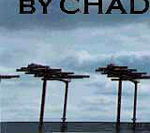|
The
New Leninism
I
have a dream. The Lenin
Mausoleum in Moscow’s Red Square has been purchased by an
American foundation and carefully moved to Washington to take
its place among the monuments of the nation’s capital. It has
been situated in the center of the reflecting pool in front of
the Lincoln Memorial, and special stone walkways have been constructed
to rise from the bottom of the pond and provide access by foot
for state dignitaries on special occasions, such as the anniversary
of the revolutionary leader’s birth on April 22nd,
when wreaths are laid and solemn tribute is paid. The vision of
US Secretary of War Donald Rumsfeld and a long line of international
statesmen all standing before the red constructivist edifice,
heads bowed and hands on heart, is the picture that captures the
true essence of historian Francis Fukuyama’s "end of history."
WHAT LENINISM MEANS
Historians
have generally associated Lenin,
nee Vladimir Ilyich Ulyanov, with Communism, because Lenin
successfully established a regime proclaiming adherence to the
ideology of Karl Marx, who articulated something called "Communism"
in his theoretical volumes. "Marxism-Leninism," then,
was "Marxism made concrete," and after Lenin
seized power in Russia in 1917, historians frequently neglected
to draw bold lines between "Communism" on the one hand,
and "Leninism" on the other. This was true even for
historians highlighting the fact that Lenin played fast and loose
with the official ideology, and conceding the possibility of being
a Communist without being a Leninist or, theoretically, vice versa.
Leninism represents progress, but not necessarily
Marxist progress. It sees state power as a tool of progress on
a global scale, as summed up by Lenin
himself in the simple equation, Communism
= Soviet [i.e., state] power + electrification of the whole country
– not a Marxist definition of Communism, whatever its meaning
in terms of left and right. As an ideology devoid of left-right
content, Leninism could be defined as adherence to a purely political-tactical
set of principles, like "the end justifies the means"
(i.e., use any means necessary to achieve a desired outcome),
"the worse, the better" (i.e., fundamental change
only comes when conditions are so bad that social transformation
is inevitable), and "give them enough rope" (i.e.,
political elites will bring about their own demise by their greed
and corruption). But even these tenets do not capture the fundamental
essence of Leninism.
LENIN AND THE HIGH PRIESTHOOD OF PROGRESS
Central
to Leninism, as opposed to Marxism, was the concept of the "Party."
As British wine critic Roger Scruton wrote in his book An
Intelligent Person’s Guide to Modern Culture:
Despite his intellectual mediocrity, Lenin
has been a more decisive influence on social and political ideas
in Western Europe than any other modern thinker, since it was
his conception of the party which offered to intellectuals their
clearest vision of their social role. The Leninist party is the
new "exit" sign. All and only intellectuals can pass
through its golden gates and into the social stratosphere. And
in doing so they are released from earthly ties and obligations
and given absolute sovereignty over the world and its goods. They
rediscover their priestly role, and with it the gift of prophecy.
The "Party," not Marxism or Communism,
forms the core of Leninism. Lenin
understood something fundamental about humans, or at least most
humans, and that is that they want to "belong." Those
with a desire to "belong" can be relied upon to command
others to build the new order, the others being outside history
and reliable swallowers of whatever is put in front of their faces.
The humans desirous of belonging fear exclusion from the Party,
where lies uncertainty, loss of prestige, social unacceptability,
and even material scarcity, and so they agree to define themselves
collectively by means of identification of an "enemy."
The shrill and inhuman rhetoric among many in the current Party,
for example, is a manifestation of their desire to say and do
whatever is necessary to remain among those with "sovereignty
over the world and its goods." Scruton is himself a Party
member at heart, as evidenced by his recent book
about the West and Islam.
Whether or not orthodox Marxism had primacy in
the birth of Leninism, Lenin
found the ideology useful because of its "progressiveness,"
a seductive force for modernity that pulled large numbers of Scruton’s
"intellectual mediocrities" into its swirling vortex
and away from the un-sexy old monarchical, parliamentary-democratic
order. Tsarist Russia was an empire of outhouses, and the new
order promised industry, electricity and technology. With the
abstract vision of modernizing transformation in their heads,
they embraced the Party’s mission of sweeping away resistance
to the new world, and of sweeping the current world into a rubbish
tip.
Many of the intellectual mediocrities had only
a tenuous grasp of the formal ideology itself, just as now – when
picturing societies on the other side of the world they have never
visited – War Party members casually embrace the eradication of
backward cultures in favor of the great modernizing might of the
Party. Whether what actually remains after the razing of these
"backward" societies they’ve never seen are desolate,
ruined dumps of humanity is of no concern. People in countries
like Bulgaria, Romania and Lithuania
do not become more prosperous and "free" by virtue of
their homelands’ admission into Leninist institutions like NATO,
the EU or the WTO, but they do achieve "progress," something
all Party members appreciate even from a great distance.
Part of Leninism is what the neo-conservative
writer, Party member and high priest Michael Ledeen has termed
"creative destruction" in his latest book, The
War Against the Terror Masters:
Creative destruction is our middle name, both
within our society and abroad. We tear down the old order every
day, from business to science, literature, art, architecture and
cinema to politics and the law. Our enemies have always hated
this whirlwind of energy and creativity, which menaces their traditions
(whatever they may be) and shames them for their inability to
keep pace. We must destroy them to advance our historic mission.
This is "cultural" Leninism, and indeed
Lenin had no time for the view that culture should be a social
force on a par with politics and economics. He allowed people
to pursue their individual cultural interests, as long as they
did not organize on a broad scale on the basis of common culture,
and in a way that threatened the supremacy of the Party. So it
is with the current Leninists.
Some may argue that, because "progress"
can be viewed differently, the Party can be a different priesthood
from a Leninist one, pursuing different ends by different means.
Indeed, the concept of the Party was also central to the Fascists
and Nazis, who had their own view of progress. But fascism is
a strain of Leninism, and Roger Scruton has described Nazism as
a "perverted outgrowth of the Russian Revolution." Fascism
is "perverted Leninism" because – from the point of
view of a political class with designs on power over the whole
world – it is a crackpot ideology.
Right Leninism (fascism) is racist, and therefore
inevitably alienates large numbers of people, people who otherwise
be politically utilized were it not for the exclusivity – and
hence mean-spiritedness – of the race-based, ruling Right-Leninist
Party. Desiring "sovereignty over the world and its goods"
like any Leninists, the Right-Leninist Party must ultimately deal
with the excluded population, even if it simply transports it
to a far-away place geographically in the short term. Under Left
(or Pure) Leninism, the excluded population (dissenters) can be
"assimilated" by ideological indoctrination. Those who
resist will of course have to be physically eliminated even under
Pure Leninism, but it is assumed they will number far fewer than
the victims of Right Leninism’s "holocaust."
In the case of America, Right Leninism is not
built into the political system in a way that would allow it to
facilitate world conquest, and indeed America is not exporting
racial or religious dominance with its global interventionism.
The places that America has invaded, bombed, and turned into dumps
of international administration have not become mono-racial theocracies.
Pure Leninism, however, is comfortably accommodated in America’s
political system in such a way that it can form the motivating
force in American foreign policy.
Lenin,
a lawyer by profession, appreciated the potential for America
– founded on the principle of egalitarianism – to experience internal
social and economic tensions. Even leaving Marxist dialectics
aside, the natural tendency of any nation-state to seek an accumulation
of material wealth abroad by force and imperialism already applied
visibly to America by the time Lenin sent Trotsky
and Bukharin
to New York in 1916 to see what the place looked like. Lenin
said that imperialism was the "highest stage of capitalism,"
a Marxist euphemism for "give ‘em enough rope," and
Lenin predicted
that America – poorly designed for imperialism – would embark
on imperialism anyway, and stagger inexorably toward the same
grave all empires before it had fallen into.
DEMOCRATIC CENTRALISM vs. TRUE DEMOCRACY
Those
with unshakeable faith in "democracy" will dispute the
view of Lenin
triumphant at the end of history. They will say that parliamentary
democracies are now the formal norm throughout the industrialized
world, whereas Lenin
was not, in the final analysis, a democrat. For these people,
Fukuyama’s complacent view of the "liberal democracy"
as the endpoint of mankind’s historical struggle, the resolution
of the historical conflict between conflicting ideas of social
and political organization, remains unsullied. But to assert that
the New World Order will not be one, big, happy, multi-party "liberal
democracy" is not the same as saying it will be a dictatorship.
Lenin
was not a democrat, but he was not a dictator either, unlike his
crude successor Stalin.
Lenin tolerated
dissent within the un-elected Party, and did not order the execution
of Party members who disagreed with him. In fact, Lenin
even conceded loss when outvoted on the Politburo. Party members
were purged during Lenin’s
tenure, but there was not the macabre culture of political show-trials
of Stalin’s era, the most high-profile show trial during Lenin’s
leadership being the trial of the SRs (Socialist Revolutionaries).
The SRs were not Bolsheviks, but only shared power briefly with
Lenin’s Party
in the government after the Revolution, and ultimately proved
untrustworthy. There were of course wars of conquest throughout
the territory of empire under Lenin,
but these were pacifying and unifying wars, just as there are
plenty of pacifying and unifying wars now in the world of victorious
"liberal democracies" at the end of history.
In much the same way as Lenin’s Party did, the
War faction of the current Party also tolerates dissent from within
its ranks, and so far has not shot any dissenters. Antiwar.com
and other opponents of the march to war can rant and rave all
we like from outside the Party, and demonstrators can gather by
the hundreds of thousands in cities all across the West, but these
manifestations of popular will do not threaten the War Party as
long as they do not represent a rival Party, tightly organized
according to Leninist principles.
Instead of Communism, the War Party uses the progressive
ideology of "freedom, democracy, and universal human rights"
to advance its cause internationally. This is of course a lie,
a tactic used by Hitler but also by Lenin,
and to more lasting effect than by the ex-corporal and Austrian
WWI veteran. To the less zealously religious, the nation is shown
as a force for tolerance, modernity and freedom around the world.
In fact, the War Party’s ideology is simply power – the power
of the New World Order exported by force under the guise of lofty,
bogus language about liberation. The real ideology is about destruction,
occupation and control. It is about reshaping, uprooting and emptying
out of populations and societies. And it is about crushing reaction
or sentimental resistance. It is about Leninism. Anybody with
ambitions to be anybody wants to be on the side of the Party,
the destroyer. The others are irrelevant.
Inside America, meanwhile, an ideology is presented
that is more crude, more akin to Right Leninism. Muslims are depicted
as an enemy at the gates, desirous of killing Christians. Since
most Americans are Christians, this plays well. Many Americans
can be made to believe that Islam is evil because people like
Pat
Robertson and Cal
Thomas – who they enjoy watching or reading with their morning
coffee – tell them so. These are the good Americans who never
go anywhere and have never been the guest in the home of a Muslim
in a Muslim country.
When the Party speaks, these good people swallow
the line with their eggs and bacon, or their cheeseburgers and
fries at lunchtime. The church is still down the road, and the
godlessness of the New World Order hasn’t taken over their little
neighborhood yet so they don’t care who gets bombed to pieces
five thousand miles away. Saddam Hussein is an "evil man,"
so why not drop a bomb on him "over there"? "He’s
a long way away, so please just take care of him and let me get
back to the sports section." Most of these people are Christians,
but are oblivious to the fact that the vicious slime in the columns
of syndicated pundits about wiping out Muslims worldwide is appealing
to the very worst in their own human nature.
Lenin
understood the newspaper readers – their hypocrisies, their timidity,
their helplessness and their malleability. He also grasped their
short memory spans. He knew that the average person anywhere in
the world can experience the tearing apart of the settled life
he or she has come to know, and the transformation of his or her
familiar surroundings into a dump, but will inevitably pick up
the pieces and adjust. Destroy their gods, their myths, and the
little sentimental things they cherish, and do it by force, resolutely,
before they have time to think. Is Leninism evil? After all, we
may think the dictator Saddam Hussein and his flaky regime are
monsters, but they are after all nothing as compared to the destructiveness
of the Leninist New World Order. Yet, in the end, perhaps there
is a strange sort of peace under Leninism, extended across the
entire globe, with the Party sitting on top of the world. So maybe
Leninism really is "justice" after all.
LENINISM AND THE NEW WORLD ORDER
A
Christian acquaintance recently expressed the sentiment to me
that America should wipe out all Muslims around the world and
"let God sort ‘em out." When I inquired gently as to
how America would conquer, occupy and pacify all the states that
are home to the world’s billion or so Muslims, he responded: "One
at a time." He was fully willing, from his home in Richmond,
Virginia, to entertain the idea of American armed forces smashing
non-Christian enemies across the globe one-by-one, because it
was "them or us." He even quoted passages of the Koran
as evidence that Muslims are duty-bound by faith to murder Christians.
If this demented view prevails, and it looks as
if it may, then one of two things will happen. Either America
will succeed in conquering and controlling the whole world, imposing
peace under the terms that its political elite desires, or else
America will fail, in which case it will recede into non-superpower
status. Under either imperial scenario, Leninism wins.
Under the first scenario, the world is united
under "peace American-style" – no state religion, no
sovereignty of nation-states, and humanity united in a brotherhood
of "universal human rights." Sure, there may be reports
coming in constantly of a war somewhere off in the distance, a
war to make the world "safe for freedom," and there
will be tales of the latest fate to befall the troops in their
never-ending battle against some eternally threatening enemy.
There may also be a network of domestic citizen-informers to uphold
state security. But core areas will be peaceful from day-to-day.
Under the second scenario, American economic power recedes, and
the political elite in the rest of the industrialized world –
made up as it is of Leninists by virtue of their former membership
in Leninist parties (followers of the conceited Trotsky
and so forth) – sets the agenda in concert with Leninists from
the once-powerful United States.
Eventually, imperialism destroys the imperialist
nation-state, and one way or another the "liberal democracy"
of America will be rendered unrecognizable by its foolish imperial
adventure. In countries where ordinary people have guns, such
as America, even if the country as a whole cannot secede from
the New World Order, there may be pockets of rebellion against
the New World Order as that country’s own gods and myths are being
destroyed. Resistance will not be based on a highbrow ideology
– trendy Gramscian
socialism, non-Leninist Marxism, anarcho-syndicalism, etc. – since
esoteric ideas cannot unite and save the common man. It will be
only a recognition of the need to protect what he honestly believes
is good and true about his life and his community in the place
where he lives, and the will to join with others to fight to protect
it.
In 1871, the Paris
Commune lasted just over two
months before it was crushed by troops of the French government
imposing peace on the terms of the victorious Prussians in the
Franco-Prussian War. Its rallying cry was not social revolution
but popular self-government. Resembling an admirable attempt to
"secede" from the New World Order, it failed not only
because it lived its short life under constant siege, but because
the men who fought to defend it lacked effective leadership and
experience in administering government. Scholar Hans-Herman Hoppe,
in his book Democracy
– The God That Failed, writes idealistically of secession
from the New World Order thus:
The process of centralization has resulted
in the formation of an international, U.S.-dominated government
cartel of managed migration, trade, and fiat money, ever more
invasive and burdensome governments, globalized welfare-warfare
statism and economic stagnation or even declining standards of
living. Secession, if it is extensive enough, could change all
this. The world would consist of tens of thousands of distinct
countries, regions and cantons, and of hundreds of thousands of
independent free cities such as the present-day "oddities"
of Monaco, Andorra, San Marino, Liechtenstein, Hong Kong, and
Singapore. Greatly increased opportunities for economically motivated
migration would result, and the world would be one of small liberal
governments economically integrated through free trade and an
international commodity money such as gold. It would be a world
of unheard of prosperity, economic growth, and cultural advancement.
Prof. Hoppe does not explain the means by which
a region or canton is to secede, but it may be that the spirit
of the Commune – a non-Leninist form of Communism – is what is
required of any community facing imminent destruction by the Leninist
muscle of the New World Order. To survive, such a community would
have to be united by a bond of resistance, and led by men able
to conceive of the enemy as evil. At the same time, it would have
to think in a Leninist way in order to beat the Leninism threatening
it. Almost no one seriously entertains the belief that this is
possible, any more than they entertain Prof. Hoppe’s sunny vision.
This only goes to show Lenin’s
unmatched understanding of humans, and why Lenin was right.
THE NUCLEUS OF WORLD LENINISM
In
1988, I visited the Lenin Mausoleum for the first time, when there
was still an immaculate and elite honor guard posted outside it
at all times, and the changing of the guard ceremony was a perfectly
executed ritual. The line to get in was very long but moved surprisingly
quickly. It was cold, and I wore a fur hat along with the other
visitors. But as I was about to enter the tomb, an armed guard
reached forward and pulled my hat off, ordering me to show a little
respect.
Descending the steps into the chamber, I wondered
why it had been designed so grimly. The marble walls were a mixture
of black and deep red on either side of the steps going down,
and in the little room at the bottom, the body of a physically
small man in a black suit was lying in a glass case under red
lighting that made his pointed goatee and the remnants of hair
around his crown glow bright crimson. There was no chance to stop,
only to look while moving, and in moments I was climbing back
out of the satanic setting into the light.
The dark, constructivist tomb still sits in the
place of honor where it was built, but there is no changing of
the guard ceremony and not even any elite guards. Only a few regular
uniformed police stand watch. I hear tourists can still visit,
as I did a few years after the break-up of the Soviet Union, but
the Mausoleum today is treated as little more than a tourist curiosity
in its host country these days. With the mafia-led Russian government
ready to sell off loyal outposts of empire piece by piece, as
evidenced by the slow strangulation of the Kaliningrad
enclave on the Baltic coast, perhaps the Kremlin will flog the
Mausoleum to a Leninist US foundation for a reasonable price.
Then the architectural offering to Lenin’s memory can move to
a place in which the ideas of the diminutive man who’s body it
occupies are truly respected, to World Leninism’s new headquarters:
America.
–
Chad Nagle
| comments
on this article? |
| |
|
Write
to Chad Nagle
Chad
Nagle is a professional writer and lawyer. He has been published
in the Wall Street Journal Europe, the Washington Times, and several
other periodicals. Mr. Nagle traveled extensively throughout the
ex-USSR from 1992-97 as a research consultant. Since mid-1999,
he has traveled widely in the former Communist bloc on behalf
of the British
Helsinki Human Rights Group.
Previous
articles by Chad Nagle
The
New Leninism
2/17/03
How
the War Party Put Iraq on the Side of the Angels
11/29/02
Day
of Preemptive Protest Appeals to Patriotism
10/31/02
House
Panel Rushes to Join the (War) Party
10/7/02
Will
Congress Rubber-stamp an Unpopular War?
9/21/02
A
Sensible China Policy For The American People
4/27/01
Hainan
Dim-Sum: Feeding a Bully's Sinister Agenda
4/17/01
The
Revolution Comes to Ukraine
3/30/01
Red
Dawn in Moldova?
3/16/01
Musings
On The New Imperialism and Post-Western World Government
2/23/01
Soros:
False Prophet-At-Large
2/9/01
Belarus:
Oasis In The Heart Of Europe
1/26/01
Serbia
Joins the West
1/12/01
Death
of a Patriot
8/31/00
The
Twilight of Sovereignty in Azerbaijan
7/14/00
The
Ukrainian Model of Democracy
5/5/00
The
Slow Strangulation of Democracy in Slovakia
3/28/00
Patrick
Buchanan and the American Reformation
1/25/00
The
Betrayal of Democracy in Post-Soviet Georgia
11/30/99
|























